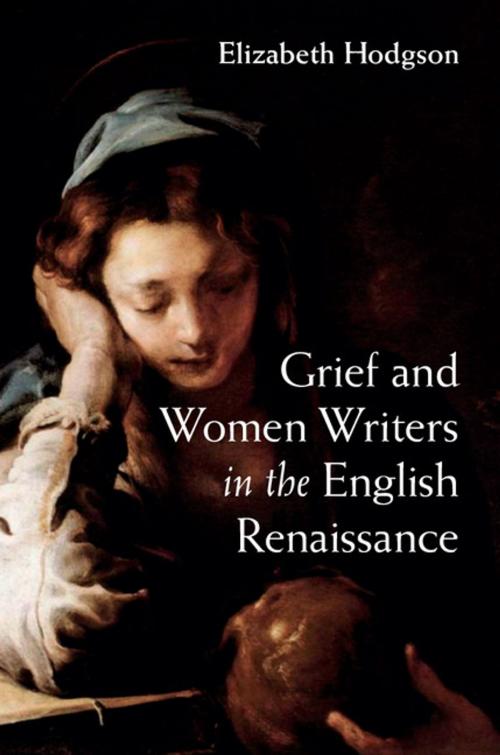Grief and Women Writers in the English Renaissance
Fiction & Literature, Literary Theory & Criticism, British, Nonfiction, Social & Cultural Studies, Social Science| Author: | Elizabeth Hodgson | ISBN: | 9781316189832 |
| Publisher: | Cambridge University Press | Publication: | November 20, 2014 |
| Imprint: | Cambridge University Press | Language: | English |
| Author: | Elizabeth Hodgson |
| ISBN: | 9781316189832 |
| Publisher: | Cambridge University Press |
| Publication: | November 20, 2014 |
| Imprint: | Cambridge University Press |
| Language: | English |
Grief and Women Writers in the English Renaissance anatomizes the era's powerful but troubling links between the forgettable dead and the living mourners who are implicated in the same oblivion. Four major women writers from 1570 to 1670 construct these difficult bonds between the spectral dead and the liminal mourner. Mary Sidney Herbert, Countess of Pembroke, reinvents the controversial substitutions of aristocratic funerals. New Protestant ideologies of the sainted dead connect devotional mourning and patronage in Aemelia Lanyer's writing. Mary Wroth's verse enacts a uniquely exalted, imaginative melancholy in which Jacobean subjects dissolve into their mourning artifacts. Among the precarious political mourners of the later half of the period, Katherine Philips's lyric verse plays the shell game of private grief. Forgetting, being forgotten, and being dead are risks that the dead and the living ironically share in these central texts by the English Renaissance's most illustrious women writers.
Grief and Women Writers in the English Renaissance anatomizes the era's powerful but troubling links between the forgettable dead and the living mourners who are implicated in the same oblivion. Four major women writers from 1570 to 1670 construct these difficult bonds between the spectral dead and the liminal mourner. Mary Sidney Herbert, Countess of Pembroke, reinvents the controversial substitutions of aristocratic funerals. New Protestant ideologies of the sainted dead connect devotional mourning and patronage in Aemelia Lanyer's writing. Mary Wroth's verse enacts a uniquely exalted, imaginative melancholy in which Jacobean subjects dissolve into their mourning artifacts. Among the precarious political mourners of the later half of the period, Katherine Philips's lyric verse plays the shell game of private grief. Forgetting, being forgotten, and being dead are risks that the dead and the living ironically share in these central texts by the English Renaissance's most illustrious women writers.















